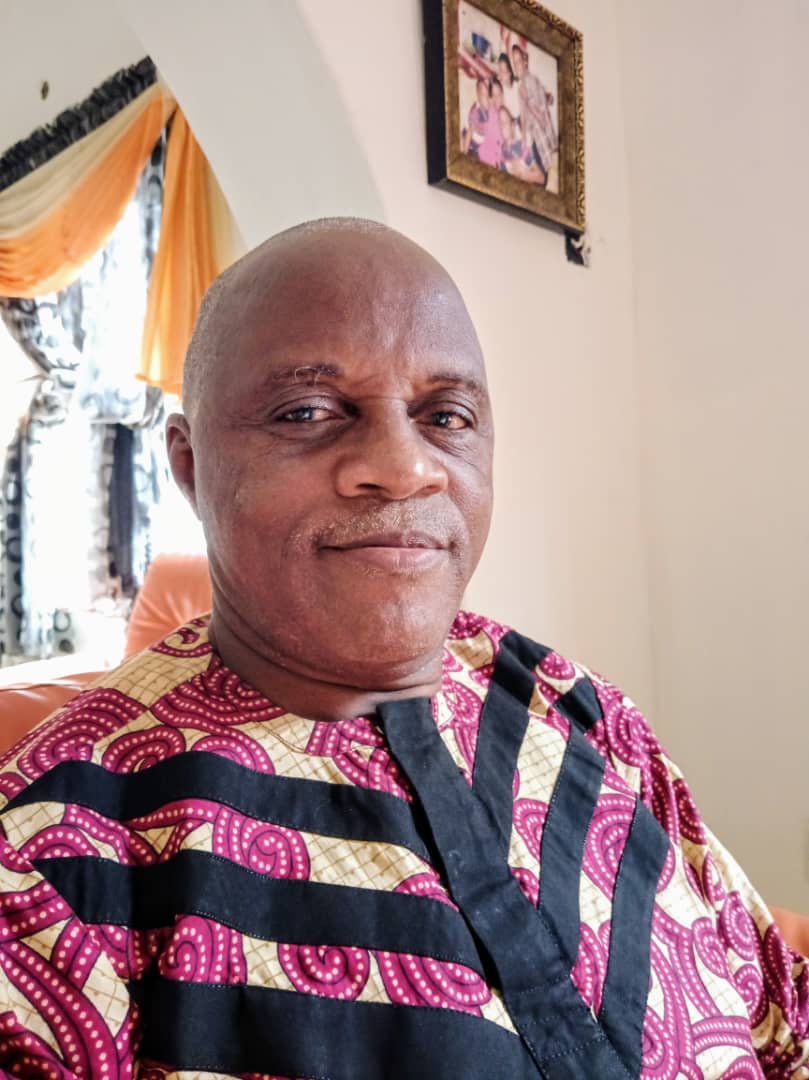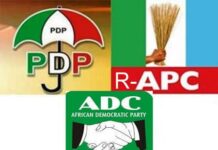Regional Commissions: For what purpose?, by Tunde Abatan
With the passage into law by the Senate on September 26 2024, of the Bill seeking to establish South West Development Commission by the Senate waiting President Bola Tinubu’s final assent, the National Assembly has within this legislative year passed into law four of such bills in the last one year, which seeks to give the federal governments support and backing to the development efforts of the various regions of the country.
With that passage, the country has also silently effected the ritual of each of the six zones of the country having a development commission to oversee its development efforts.
It is quite obvious that the various development Bills were all intended to borrow the development initiative of the Niger Delta Development Commission, NDDC, which came into existence in 2000 by the Olusegun Obasanjos government, the country is gradually returning into regionalism which was the structure of government bequathed to it by the departing British colonial government on October 1, with independent constitution which recognised three regions for the country.
It is also important to take a second look at the performances and achievements of the NDDC in the past twenty four years of its creation and see whether it has achieved the purpose for its creation.
READ ALSO: Frankly Speaking: Our insecurity, our negligence, by Tunde Abatan
This is necessary to serve as a benchmark for the newly created Development Commissions in order to prevent its operations compounding the problems it is meant to solve as the NDDC has turned out to be.
It is very important to note that before it was passed into law by the Senate last September, the Bill has been with the upper legislative chamber since 2013 when it was first introduced by former Senator Gbenga Ashafa of the Lagos East Senatorial district under the then leadership of former Senate President, Bukola Saraki, of the 8th Senate.
It was read for the first time at plenary under the eight legislative session. However, for one reason or the other, the Bill could not see the light of the day during the tenure of the last 9th senate.
It is instructive to note that while passing the bill into law, the document stipulated that the Bill is to allow the South West to receive and manage funds to be allocated from the federation account including donations, gifts to rehabilitate infrastructural damages tackling ecological, environmental and development challenges in its area.
The South West Development Commission includes states like Ogun, Oyo, Lagos, Ondo, Ekiti and Osun States.
The bill this time arround was sponsored by Senator Gbenga Daniel, former governor of Ogun state and the Senator representing Ogun East senatorial district.
One area which we need to examine is the fact that the six states all belong to the former western region of the first republic and they were all touched by the developmental strides of the region.
After the dismantling of the region due to creation in 1976, the six states still set up the Odua Investment company to manage the over forty investment concerns bequeathed to it by the defunct Western region.
Besides, the Odua Investment, the six states also set up the Development Agenda for Western Region, DAWN, which is more or less a think tank to advice and chart the way forward for the six states which still share the same political and geographical affinity but had its development strides arrested unlike what it was in the first republic.
Till date, no meaning full project has been handled by the DAWN and the Odua Investment which has lost almost half of its subsidiaries due to poor management and to some extent the state of the nation’s economy.
With the South West Development Commission likely to be signed into law by President Bola Tinubu when he returns from his working leave, what difference is it going to make to current efforts by the Odua Investment and the intellectual component as represented by the DAWN commission whose proposals in form of projects remained on paper.
Three months before the passage of the South West Commission Bill, the South East had its own bill passed into law by the upper legislative chamber.
The Bill was also as a response to the NDDC Act and is also to receive funds and other donations. More importantly, the sponsors of the Bill said it is to effect repairs suffered by the region as a result of the civil war fought over five decades ago.
One may ask what happended to the Reconstruction, Reintegration and Rehabilitation othewise known as the three RS implemented by the military government of General Yakubu Gowon.
Does it mean that the programme has been abandoned or never took place. It did. With the reasons advanced above it is clear that the region too wanted its own slice of the cake as done to other regions in the country.
It is also expected to be signed into law by President Tinubu. Preceding the South East Bill the North West Bill was signed into law by President Tinubu on 24 July after its approval on May 17 by the Senate. Immediately, the President also appointed Professor Abdullahi Shehu Maaji as the Managing Director and Chief Executive.
It will also focus on catalysing what the sponsors described as the economic growth and social development of the region.
Then you also ask what happened to the Arewa Group of Companies which is as old as the country itself though consisting of the companies owned together by the nineteen northern states.
The North East Bill was signed into law in 2017. The region, which comprises Adamawa, Bauchi, Borno, Gombe, Taraba and Yobe states, to among other issues tackle the problems created by insurgency in the region and address its ecological problems. It was signed as an Act on October 25, 2017, seven years ago and has since attracted sizeable funding from the federal government and international donors like the United Nations humanitarian agency and others.
The North Central states, comprising of Plateau, Benue, Niger, Kwara, Kogi and Nasarawa states, have also had their own Bill passed into law by the National Assembly, thereby completing the circle among all the six geo-political zones in the country.
Thus, by the time President Buhari signs the three others, SE, North central and South West which has picked Ibadan, the former political capital of the Western region as its headquarters, into law the cycle would have been completed.
The six regions in effect would have had identifiable development organs operational outside the 36 states of the country and the federal government would have added the burden of providing for them since they all have identical issues and goals to pursue.
This means in effect that the country would have surreptitiously returned itself to the original structures inherited at independence in 1960 but with the multiplication of structures of government. Without been inserted into the nation’s constitution, it means that the country will have four government layers; federal, state, local government and now Development Commissions to dispense and cater for.
Hence, we have to question the wisdom or rational for duplication of efforts since the states are set up to provide some services now being replicated in the commission.
Is it reasonable and justifiable to expand the structures of government without first expanding the financial base for sustaining such structures considering the economic woes the nation is passing through.
After a meeting with the Afenifere leaders some months ago, President Tinubu told them that restructuring of the country would only be fairly accomplished after he has fixed the economy.
But is the signing into law two separate development commissions and allocation of funds to them not an economic creation which needed to be funded equally among the six zones.
Advocates of return to regional government have always advocated for inclusion in the constitution as the only way out of solving relative problems of the regions and indeed the whole country.
Hence, it is important to examine the finances of the NDDC to rationalise and justify if any, the need for such taking into consideration that twenty four years after its founding, it is yet to be determined whether it has justified its creation in the first instance especially with the humongus money already gulped without solving the problems which necessitated its creation in the first instance.
This is necessary to serve as a benchmark and guidance for the newly created Development Commissions in order to prevent it from compounding the problems it is meant to solve as the NDDC has turned out to be.
According to the Paradigm Leadership Support Initiative, the nine states of Delta, Edo, Imo, Abia, Akwa Ibom, Bayelsa, Cross Rivers, Rivers and Ondo, which made up the commisison received a total of $40 billion US dollars between 2000-2021 for its operations and has failed to acocunt for how the money was spent.
Besides, the increasing hostilities in the region occasioned by restless youths and oil bunkering has negated the purpose for its creation in spite of the huge sums of money allocated over the years.
Furthermore, the NDDC has received about N907 billion meant to execute 176 projects in the region, almost of which have been abandoned and not accounted for by the body.
Today, the NDDC has 13,000 doubtful projects in various stages of abandnoment. It is also in record that the regime of late Umaru Yaradua created the Amnesty Programme through which monthly stipends were paid to restive youths in the region while those of them who could further their education were awarded schorlarships, both local and foreign.
All these were done in a bid to improve security in the region and made it less cumbersome to process and export oil.
Today, the problem of disruptions and destruction of oil pipelines are still there but the new security measures put in place has significantly improved in the last one year.
This has improved the nation’s crude oil production and exposition to average of 1.5 million barrels per day. This still represents a shortfall of OPEC’s quota of 2.5 million for the country.
As a result, the creation of five new Development Commissions in the country must be done in such a way that it is not meant to satisfy regional agitations. Is it not reasonable that the country return to its original regional system with the creation of additional two regions if the new commissions are to be funded by the federal government?
The creation of six zonal regions by the National Assembly is in an admissions of sort that the country needs to identify and accept the diversities of the nation and need for creation of relative structures of administration to meet their peculiar needs.
Creating Regional Development Commissions funded by the federal government is a duplication of resources already in the hands of state and local governments.
If such resources are placed in the hands of regional government, it will serve a better purpose than creating needless administrative units running parallel functions with state governments.
Proofreading by Gift Luckson, Editor at Neptune Prime.
Follow the Neptune Prime channel on WhatsApp: https://whatsapp.com/channel/0029Va74ZvU2v1IqKByXoX3d
Do you have breaking news, interview request, opinion, suggestion, or want your event covered? Email us at neptuneprime2233@gmail.com
Follow the Neptune Prime channel on WhatsApp:
Do you have breaking news, interview request, opinion, suggestion, or want your event covered? Email us at neptuneprime2233@gmail.com





